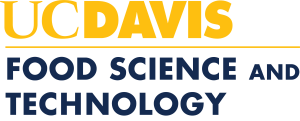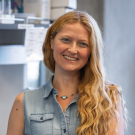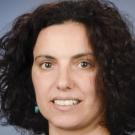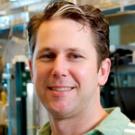Graduate Group Faculty
3164 Robert Mondavi Institute - North
Gail Bornhorst, Ph.D.
3056 Bainer Hall
Bruno A.M. Carciofi
3054 Bainer Hall
Juliana Maria Leite Nobrega de Moura Bell, Ph.D.
2212 Robert Mondavi Institute - South
Julien Delarue, Ph.D.
2032 Robert Mondavi Institute - Sensory
Erin DiCaprio, Ph.D.
3208 Robert Mondavi Institute - South
Stephanie R. Dungan, Ph.D.
2202 Robert Mondavi Institute - South
Susan E. Ebeler
3148 RMI North
Oliver Fiehn
1315 GBSF
Glen Fox, Ph.D.
2158 Robert Mondavi Institute - North
Jacquelyn Gervay-Hague
5463 Chemistry Annex
Andrew J. Gravelle, Ph.D.
2208 Robert Mondavi Institute - South
Jean-Xavier Guinard, Ph.D.
2034 Robert Mondavi Institute - Sensory
Linda J. Harris, Ph.D.
3212 Robert Mondavi Institute - South
Hildegarde Heymann
2030 RMI Sensory
Elizabeth Maga
2125 Meyer
Maria L. Marco, Ph.D.
3200 Robert Mondavi Institute - South
David A. Mills, Ph.D.
3142 Robert Mondavi Institute - North
Alyson E. Mitchell, Ph.D.
2204 Robert Mondavi Institute - South
Ben Montpetit, Ph.D.
3150 Robert Mondavi Institute - North
Nitin Nitin, Ph.D.
2214 Robert Mondavi Institute - South
Zhongli Pan
3018 Bainer Hall
Pramod K Pandey
Vet Med 3B
William D. Ristenpart
3012 Bainer Hall/3202 RMI South
Dr. Ron C Runnebaum
3160 Robert Mondavi Institute - North
Justin Siegel
5212 Genome and Biomedical Sciences Facility
Christopher Simmons, Ph.D.
3202 Robert Mondavi Institute - South
Carolyn Slupsky, Ph.D.
3206 Robert Mondavi Institute - South
Edward Spang, Ph.D.
2036 Robert Mondavi Institute - Sensory
Ameer Taha, Ph.D.
3162 Robert Mondavi Institute - North
Luxin Wang, Ph.D.
3210 Robert Mondavi Institute – South
Selina Wang, Ph.D.
2160 Robert Mondavi Institute - North
Bart C. Weimer
2055 Haring Hall
Xiang Crystal Yang
2237 Meyer Hall
Jianan Zhang, Ph.D.
2202 Robert Mondavi Institute South
The University of California does not discriminate in any of its policies, procedures or practices. The University is an affirmative action/equal opportunity employer.







































